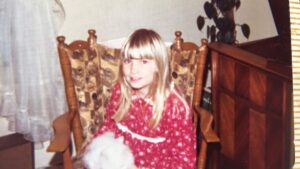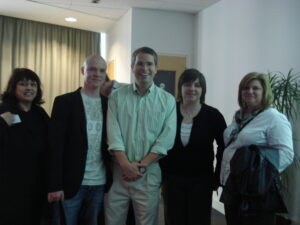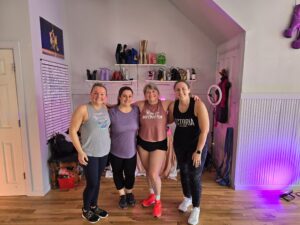I’ve struggled with my weight for most of my life. From around the time I was ten years old, I was chubby, fat, or obese, depending on who you were talking to. It hung over me, stealing joy from otherwise joyful moments.

I have very few pictures of me with my children throughout their childhood. The lead-up to every event felt like torture, with worry over what to wear and what I could do to make myself look better, i.e., not fat. Vacations meant wearing clothes and bathing suits that I couldn’t hide in. Would my children be embarrassed because their mother was fat?

I’d find myself happily walking down the street, catching a glimpse of my reflection in a shop window, and my happiness would turn to despair.
All that time, I lived with an underlying disgust for my own body. I hated myself because there must be something wrong with me, a weakness, a stupidity, a foolishness, that I could not control my weight.

Why didn’t I eat less? Why didn’t I exercise more? With all of this distress, why didn’t I just do what it takes to lose the weight?
These thoughts were not wholly unfounded. At times during my childhood, other children teased me for my weight, called me fat, gave me the nickname “Waddles,” etc. I had only one boyfriend for a few months in seventh grade and only had two dates in high school—no prom for me.
After high school, I thought that men didn’t approach me because of my weight. I saw a look of disappointment or disdain when their eyes moved from my blonde hair and blue eyes to the rest of my body. I hoped that a couple of flirty friendships would turn to romance but didn’t, and I was sure it was because I didn’t physically fit the man’s vision of his partner.
I felt grateful to my “naturally slim” husband (I did eventually get a boyfriend) for being with me “despite how I looked.” Insecurity about my looks soared when I started dating after my divorce at nearly 60 years old, particularly in the treacherous dating scene during and after the pandemic.

In my career, I’ve often thought that being overweight held me back, especially as a self-employed person. The lack of confidence was a real issue, particularly as a marketer who should post images and videos to promote myself.
Don’t get me wrong. Apart from some very depressing years in my twenties, I have been mostly happy and have lived an extraordinary life, but with self-loathing and a lack of self-love. The most challenging times were when I’d think, “I have all this. Imagine how more wonderful it would be if I were thin, or at least a ‘normal’ weight.”
More than I’d like to admit, I have thought, “Why me?!”
Then, other times, I thought, “I have been given this challenge for a reason,” and I searched for a purpose in all of this. Am I more resilient because of these struggles?

For more than ten years, I have been working on peeling away the layers of negative mindset. In the past two years, I started transforming my body through dance fitness, other exercises, and healthy practices, focusing on all areas of my physical and mental health.
I now genuinely love my body and my whole self.
So, why have I decided to take a GLP-1 drug for weight loss?
In future articles, I will share the details of my work to get to this beautiful place and my journey of ongoing wellness and self-actualization – and discuss the decision to take a GLP-1 drug for weight loss.
Take Action!
🌸 Consider the mindset issues that have stood in the way of achieving your health and fitness goals.
🌸 Write a page on how these issues have affected your life, especially how you feel about yourself and your body.
🌸 Email me at admin@raisingyourvoice.com with your story. I’d love to hear about your journey!
If you enjoyed this article:
🌸 Share it with any friends you think could benefit from these articles.
🌸 Follow me on social media for more on personal and professional wellness.
🌸 Click here to subscribe to my mailing list to get each new article in your Inbox.